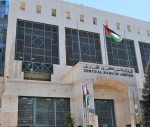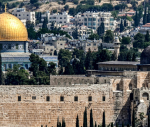You are here
Threatening Gaza recovery
Sep 02,2014 - Last updated at Sep 02,2014
Barely a week had passed since a ceasefire agreement was reached by Palestinians and Israelis, through Egyptian mediation, before verbal clashes erupted between Palestinian Authority President Mahmoud Abbas and Hamas over the 50-day Gaza war.
Abbas accused the Islamist resistance group of prolonging the war and refusing offers to reach a truce before discussing its full demands.
In his view, this increased the number of Palestinian casualties.
He said that in the end, Hamas accepted the same offer that was presented to it on the 10th day of Israeli aggression on Gaza.
Furthermore, Abbas accused Hamas of running a “shadow government” in Gaza and preventing the national unity government from carrying out its duties, which could harm the reconciliation agreement reached a few months ago.
He also criticised Hamas for unilaterally taking war and peace decisions, and for interfering in the flow of aid going to Gaza.
On its part, Hamas cast off such accusations and criticised the government of Prime Minister Rami Al Hamad for failing to do its part in Gaza. It also rejected proposals that a West Bank committee oversees rebuilding efforts in the stricken strip.
Fateh and Hamas traded accusations over the holding of activists in the West Bank and Gaza.
Abbas described Hamas’ public executions of alleged Israeli spies as “criminal”.
The show of unity and solidarity that Palestinians from various groups exhibited during the Israeli aggression on Gaza seems to have ended, allowing deep-seated differences and mistrusts to resurface. There have always been doubts over the seriousness of both Fateh and Hamas to end their rift, which lasted for over seven years.
Both parties engaged in hostile acts against followers and key leaders. Hamas, which took control of Gaza in 2007, resisted pressure to allow the Palestinian Authority to return to the strip. Fateh has made sure to undermine Hamas’ presence in the West Bank.
As a result of the widening gap between the two sides, the Palestinian political process was hamstrung. Deadlines for presidential and legislative elections were missed time and again while Abbas consolidated his grip over the West Bank and Hamas became the absolute ruler in Gaza.
Geopolitical changes in the region compelled the two parties to ameliorate their positions.
The uprising in Syria forced Hamas to sever ties with the Syrian regime and, as a result, its alliance with Iran and Hizbollah was shaken.
The overthrow of Islamist President Mohamed Morsi in Egypt last year dealt a heavy blow to Hamas, which was declared as a terrorist organisation by the new regime.
Meanwhile, Israel continued to tighten its land, sea and air blockade of Gaza, leaving Hamas both isolated and discredited.
It was a combination of all these developments that forced Hamas to revisit the issue of Palestinian reconciliation one more time.
Abbas, on the other hand, had good reasons to embrace his Gaza archrivals. After almost a year of unfruitful negotiations with the right-wing government of Israeli Prime Minister Benjamin Netanyahu, under American auspices, he came out empty-handed.
Israel accelerated its colonisation of West Bank territory and offered the Palestinian president nothing.
Abbas and Hamas saw the revival of reconciliation efforts as a way out from dire straits. The culmination of an agreement between the two last April angered Israel, which sought to undermine Palestinian unity.
The kidnapping and subsequent killing of three Israeli youth last June in the West Bank was blamed on Hamas, which denied the accusation.
Israel used that incident as a pretext to arrest hundreds of Palestinians in the West Bank, including those who were freed under the Shalit deal, and later to wage war on Gaza.
Hamas claimed that it was forced to go to war and vowed to resist, rejecting offers for a ceasefire until all its demands, paramount among them the removal of the blockade, were fulfilled.
Abbas hesitated at first, but then threw his weight behind the resistance. He formed a delegation representing all Palestinian factions to go to Cairo for indirect negotiations and embraced Hamas’ demands.
The war on Gaza was costly for the Palestinians. More than 2,200 Palestinians died in Gaza as a result of the brutal Israeli aggression while hundreds of thousands were displaced. And even as both Hamas and Israel agreed to a monthlong truce, it is not clear that future negotiations will end Israel’s siege and pave the way for the opening of a seaport and airport in Gaza, among other things.
Statements last week by a leading Hamas official, Saleh Al Arouri, who is in exile in Turkey, that the Islamist movement was in fact responsible for the kidnapping of the three Israeli settlers will deepen the current rift.
The pressing question now is how will these differences affect the Cairo negotiations between the Palestinians and Israelis?
What Netanyahu could not achieve through his assault on Gaza will be delivered to him now at no cost at all.
Buoyant after its so-called victory in Gaza, Hamas is hesitant to allow Abbas and the PA to reclaim control of the strip. But that is the only way for the endurance of the reconciliation and a precondition for ending the Gaza siege.
It is sad that after the hefty price the Gazans paid, the current inter-Palestinian rift could render their sacrifices meaningless.
The writer is a journalist and political commentator based in Amman.












